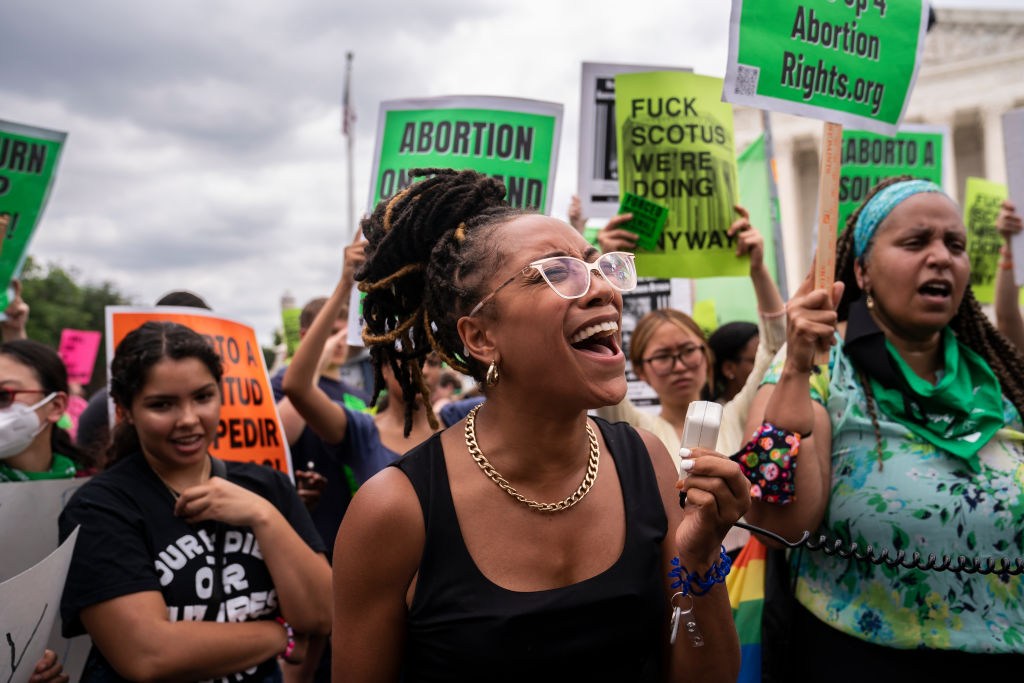Black women are worried about the future of abortion and reproductive rights as politicians fail to provide affordable access to birth control and fight to curtail access to Mifepristone, an abortion medication that can be used to terminate pregnancy through ten weeks gestation.
According to a new survey published by In Our Own Voice: National Black Women’s Reproductive Justice Agenda, half of Black women of reproductive age who participated in the survey expressed interest in obtaining birth control pills over the counter.
Of women aged 18 to 44, a significant portion were interested in accessing birth control pills over the counter. The study noted that a percentage of women aged 18 to 44 could not afford to pay $45 or more for a three-month supply of birth control pills, which can retail around $49.99.
Following the dismantling of Roe V. Wade in 2022, fourteen states enacted complete bans on abortion.
Except Florida, states with existing abortion bans have not safeguarded the right to use or access contraception, like birth control. Among the remaining states that either ban or significantly restrict abortion access, there is a lack of state-level protections for contraceptives. This absence of protections leaves certain contraceptive methods susceptible to potential future efforts aimed at restricting access.
Additionally, several other states prohibit the delivery of abortion-inducing drugs, such as Mifepristone, via mail, and mandate in-person doctor visits before obtaining a prescription for the pill. According to the Guttmacher Institute, a research organization advocating for abortion access, medication abortions accounted for 63% of all abortions in the United States in 2023.
Due to the bans, 41% of respondents said they considered their own risk of death should they get pregnant. Around 36% have thought about the consequences of being arrested due to pregnancy-related issues.
Those fears may compound now that…
Read the full article here



